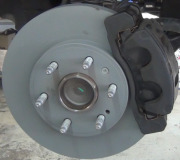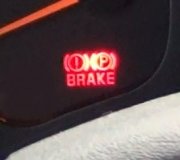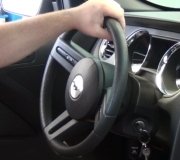Sticking pistons in the brake calipers is the most common cause of this, but you also have to look for signs of brake fluid contaminated with a petroleum product. If the fluid is contaminated, the new master cylinder should have solved the problem for a few days, but then it would return again.
The place to start is by getting the brakes to lock up again, then stop on a slight incline, shift to neutral, place a block about a foot downhill of one tire so you don't have to run chasing after your vehicle, then open the hydraulic system at various places to see where the fluid is being trapped. If you loosen the line nuts at the master cylinder and the brakes release, you either have contaminated fluid, the booster push rod is adjusted too far out, or the brake light switch is misadjusted and holding the brake pedal down a little.
If you can open the bleeder screws on the calipers and the brakes still don't release, the pistons are sticking. We used to rebuild calipers at every brake job to prevent this from happening, but today commercially-rebuilt calipers are so inexpensive, it doesn't really pay to rebuild them yourself.
Tuesday, December 24th, 2013 AT 3:50 PM



